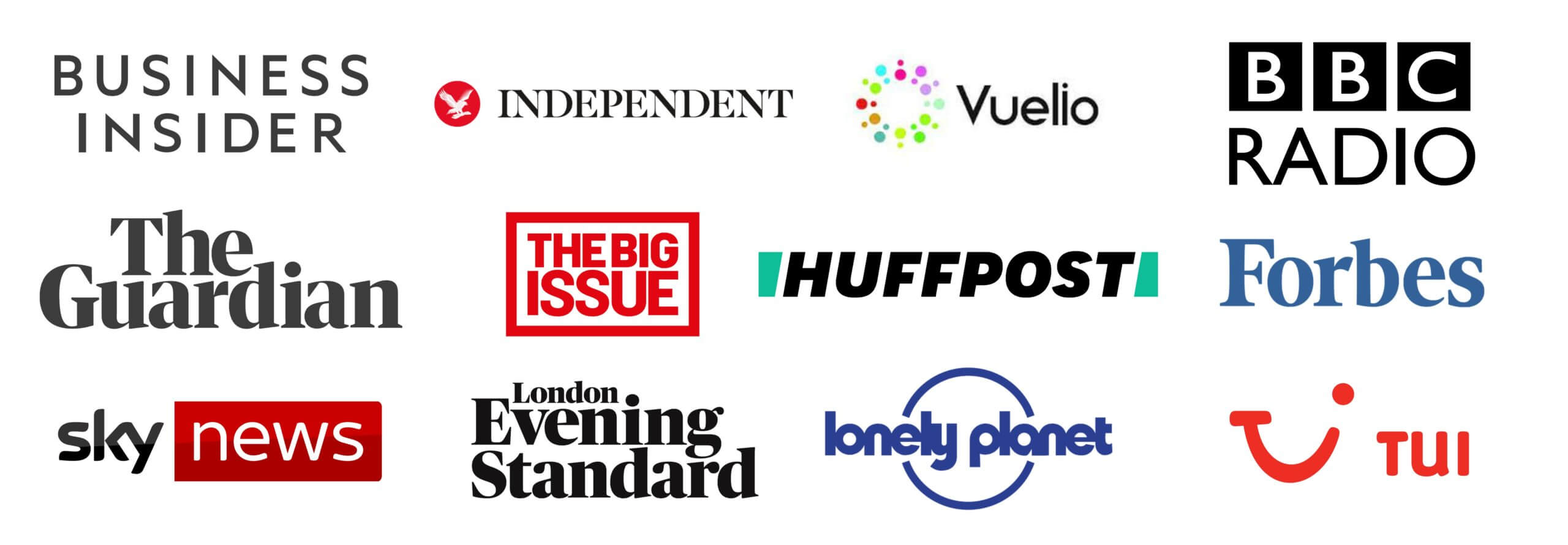
VickyFlipFlopTravels is a 14-year-old travel and festival blog run by me, Victoria Philpott.
I studied Communications and Journalism in Sheffield (BA Hons) before going on to Harlow College to gain my formal National Council for the Training of Journalists (NCTJ) schooling. I also have accreditation from the Digital Marketing Institute, as you can see on LinkedIn at Victoria Philpott.
In the past I’ve worked as a Content and Social Media Manager in travel and as a Content Editor as well as in various roles for some of the UK’s most popular magazines.
But now?
I write about travel & festivals
I work for travel websites, magazines and festival companies, using my knowledge and first hand experience to help them serve their customers better. And of course, I run this blog, and my other site over at DayOutinEngland.com. Since my son came along, family travel has become a focus!
VickyFlipFlopTravels Stats

My readers
(Last updated March 2025)

What my readers said about me in my last reader survey…
– “How you write is so easy to read and possibly the best thing ever is that you don’t write the really, really obvious list posts that I keep seeing more and more lately, or in other words ones that just state the plan obvious/common sense.”
– “It’s honest and includes plenty of anecdotes”
– “The witty writing style – it’s a lot more humorous compared to the other blogs I read, and that’s what sets it apart.”
– “Your passion”
– “Your blog posts about Iceland convinced me that I needed to get my butt into gear. And also, having followed your blog for years, it was one of the very first blogs I ever read which inspired me to start blogging! So…go you! :)”
– I DEFINITELY want to drive the PCH, go to Oktoberfest and Tomato festivals after reading about them on your site.”
– “I love how real you are about your travels and with your photos, they not all perfectly posed in front of that iconic sight. Reading your stories is like a friend telling you how it really was and going through their photos.
– “Everything you post radiates your personality and that’s what a lot of bloggers are missing nowadays. So basically, go anywhere — I’d read it all! :D”
I’m on YouTube too!
Subscribe on Youtube:
My writing work
In the past I’ve written for Thomas Cook, NetFlights, Flight Centre, The Big Issue, Travelettes, Intrepid Travel, Round the World Experts and Busabout, among many other sites. I was the Travel Editor for the awesome Blogosphere Magazine too.
Most recently I’ve been writing about England for Lonely Planet, and have written the chapter on the South East for their latest local guidebook, Experience England.
- Cycling from Hanoi to Ho Chi Minh City on Intrepid Travel
- The Benefits of Cold Weather Paddleboarding on The Independent
I’m currently freelancing for Saga Magazine online, establishing their travel hub for their senior readers.


buy my book
Celebrate: The Greatest Festivals in the World
Every culture likes to party. Traditional celebrations, whether the Hindu Holi Festival or the Japanese Cherry Blossom Festival, have traveled beyond their origins to become international phenomena. Whether seasonal or religious, such holidays represent the human need for authentic experience, direct encounter, and a sense of time or the spiritual.
AS FEATURED ON…


VickyFlipFlop media pack
Everything you need to know about VickyFlipFlopTravels.com – let me know if I’ve missed anything!


DOWNLOAD VICKYFLIPFLOP MEDIA PACK
Listen to my Podcast
So She Travels
So She Travels is the podcast for women who love to travel, and want to find out how to do more of it. I chat with some of the most interesting women in travel and find out how they get to travel so much, their top recommendations for following in their footsteps and what it’s like travelling as a woman. We’ll choose a destination, a topic and then, just go!
-Victoria Philpott –

Awards and mentions
Feedspot says I’m the number 1 UK solo female travel blog to follow.
I’m regularly featured in best blogger lists. I’ve been quoted on TravelZoo, in Wanderlust Magazine, SheKnows, The Guardian, The Evening Standard, and featured in the Daily Mail and on BBC Radio too.
I was featured in the Book of Jobs, by Lucy Tobin, alongside Britain’s first ESA astronaut!
I wrote about my trip cycling the length of Vietnam for Dorking Kingsley’s Book, Ride.
I was a finalist in the 2021 British Travel Media Awards, especially for my work on my other site Day Out in England.
One of my proudest moments has to be getting featured on the President of Estonia’s Facebook page and in the national Estonian press.


Contact me
Get in touch if you want to work together on blog collabs, writing work, campaigns, advice, consulting…
Follow me on Instagram @VickyFlipFlop







